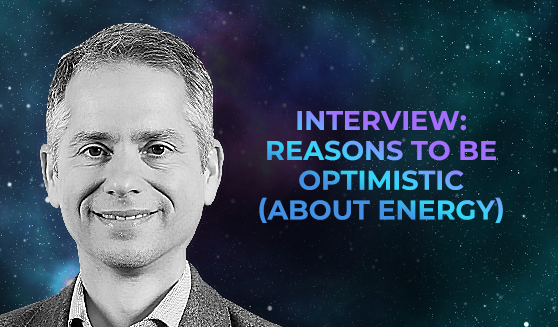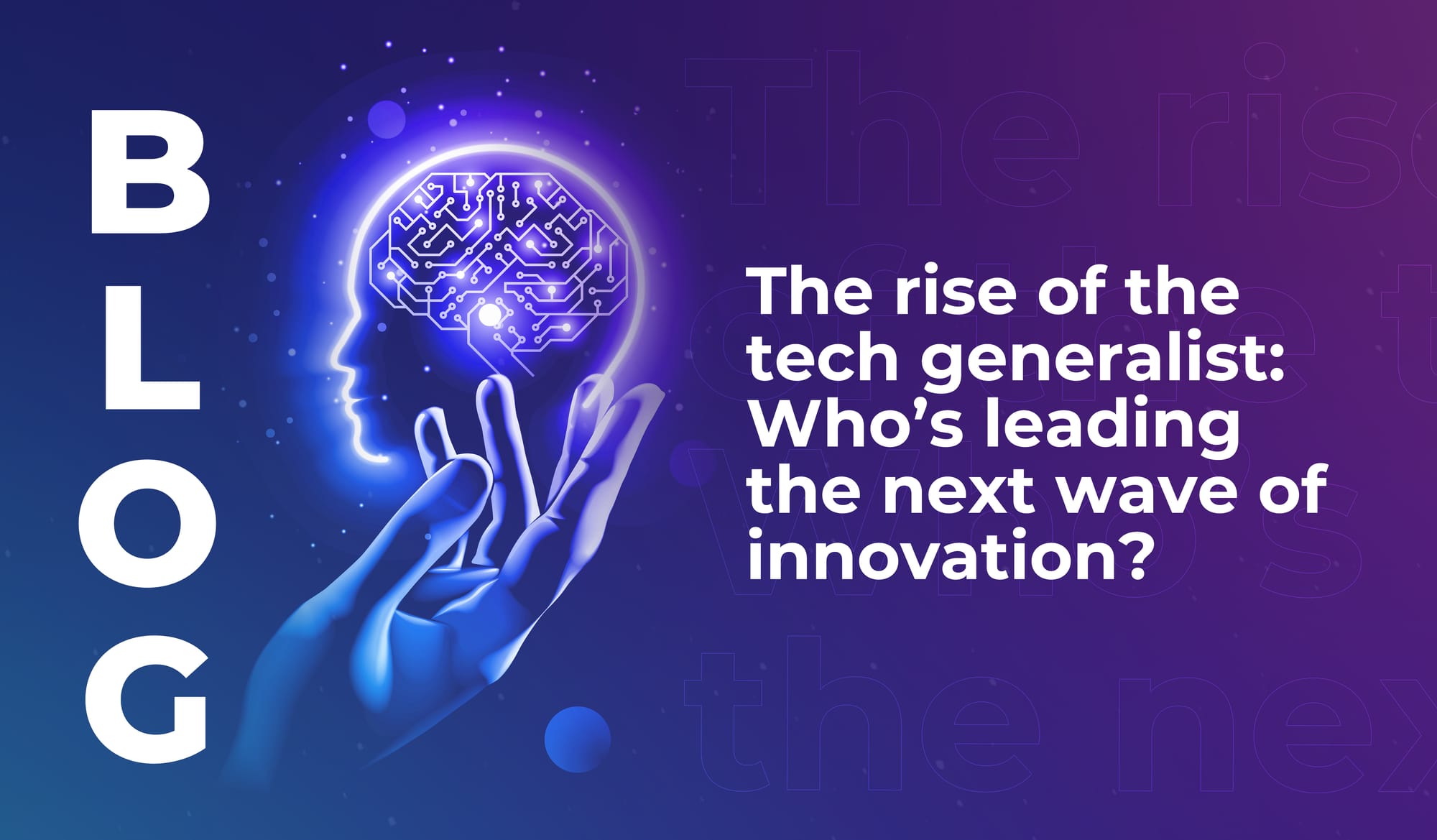
Let’s be honest: there’s a lot to worry about right now. From pandemics to political conflict; food (in)security to the ever-looming climate crisis, we’re met with new anxiety-inducing situations every day. It’s not surprising that when polling company Gallup surveyed 160,000 people in 116 countries at the beginning of 2021, the resulting Global Emotions Report found that more people were stressed, sad, worried and angry in 2020 than at any other time in the last 15 years.
With 40% of adults experiencing significant worry or stress, we wanted to give you, LEAP readers, something to feel optimistic about. And what could be more optimistic than an insider look at how climate tech is driving decarbonisation and enabling a more sustainable future?
So we spoke to energy investor and #LEAP23 speaker Jan Lozek (Founding and Managing Partner at Future Energy Ventures) to find out why it is OK to feel optimistic as we approach a new year.
How would you describe the relationship between digital tech and the future of energy?
“The future of energy will be built on digitalisation – without software there can be no decentralised net zero energy system. The energy system is fast becoming a network of centralised and distributed energy resources, which relies on digital technologies and software to manage and harmonise. As that network expands, technology is only becoming more important.
“Within our current portfolio it’s possible to see how broadly embedded digital technologies are within the energy system already. For example, there’s Thermondo, which digitises the processes around modern heating installations to scale their deployment and accelerate the energy transition. Already they are the largest planner, seller, financier, and installer of residential heat solutions in Germany.
“Then there’s Bidgely, which provides AI-driven analytics based on the energy usage patterns of millions of households to utilities and consumers to enable them to achieve energy efficiencies.
“Beyond the energy industry itself, energy is converging with other adjacent industries, such as construction, building management and mobility to ultimately create smart cities. Take gridX, which we recently exited, for example. It is one of the key foundations smart cities are being founded on. It provides the digital infrastructure for smart cities, connecting distributed energy resources on a single platform and optimising the energy flows to make most efficient and effective use of energy. Another company, in the area of proptech, is Buildots. This Israeli company uses ML and AI to collect data from construction sites to build digital twins. By enabling the environment to be managed digitally the building process itself becomes more efficient and reduces energy consumption in one of the most highly energy intensive sectors.
“Digital technology and the future of energy are inseparable and entirely interlinked.”
Could you share the key milestones that Future Energy Ventures has achieved over the last year?
“We achieved a huge milestone this year as we launched our independent, Luxembourg-domiciled climate tech VC fund, which marks the next chapter for Future Energy Ventures as we continue our mission to create a decarbonised future. Our goal is to become Europe’s leading investor focused on the energy transition and the establishment of the new independent fund is an important step towards realising that.
“As part of this process and our continued professionalisation, we’ve also been focusing on improving and further developing our decarbonisation impact strategy, which is something we’re very proud of. The new independent fund is an SFDR Article 9 fund, and we aim to funnel 100% of our capital towards sustainable investments. This has required a lot of effort to ensure our ESG policies and measurement processes are in place.
“We’ve been very active in growing and scaling our current investments, to accelerate decarbonisation and create impact. Collaboration and a hands-on approach are fundamental elements of our investment platform and we’ve been excited to help our companies develop their sales pipelines, grow revenues and scale further in Europe and the US.”
How has the pandemic changed the direction and/or pace of the journey towards digital-enabled clean tech?
“What we saw during the pandemic, and now the Ukraine war-fuelled energy crisis, have contributed to acceleration towards digitalisation. The pandemic spurred a wave of digitalisation and automation generally, with a renewed focus on smart cities, mass transit, proptech and energy.
“It also exposed some of the shortcomings of a globalised world – such as the fragility of supply chains and the over-reliance of societies and economies on natural resources, companies, governments and trading partners for essential goods and services, over which they have little control.
“Digital tools will fill some of these gaps and strengthen the system against the fallout from this period of deglobalization.”
If you look back at your career so far, what has given you the most confidence (or hope!) that a decarbonised future is possible?
“A really important takeaway for me is that the energy transition didn’t begin as a top-down initiative. It wasn’t set up by governments, nations, or large organisations – it began as a conversation within the societies in Western Europe 40-plus years ago to put what were inefficient renewable technologies in the ground in order to create renewable energy and politicians followed that agenda.
“It gave me the confidence that if we, as society, want to make something happen, we can. Fast forward to today and renewable energy is the cheapest of the energy production technologies. That’s because of a journey that started 40 years ago.
“I have always worked in the technology and energy industries; I started out as an entrepreneur, became a consultant, and then worked in large utilities and now I’m a fund manager. What I’ve learned along the way is that if you have passion and want to achieve something, you can make it happen. You just need to start out and find like-minded people with the same spirit to grow and scale. If you push personally and have the passion for something you can achieve it. It’s just about you, not a big society.
“If you look at current energy transition technologies, it puts the power in the hands of the people. You can make your own decisions about energy: How should I organise my heating? Should I use a heat pump? Should I install solar panels? Should I buy an EV or classic vehicle?
“All these decisions are ours to make, and we are the owners of the energy transition. That gives me confidence and gives me a lot of hope.”
A final thought…
“Look at economics and the development of the global economy. If you take the emergence of the internet in the late nineties and early 2000s – back then, Exxon, BP, Shell were the biggest companies in the world. Today, as the internet is fully commercialised, it’s the companies related to the internet (Google, Apple, Facebook, etc.) in this position because they pushed this digital world to the next level.
“When I look at the energy transition, in 30+ years, the biggest companies will be those who provide climate technologies and solutions to help make the planet more sustainable. I’m confident in this because we have already seen it happen once before in our lifetime. The internet was a vision and dream, but it became reality. The same principles apply to the energy transition – and that too gives me a lot of optimism.”
Thanks to Jan Lozek at Future Energy Ventures. Join us at #LEAP23 to learn more.








